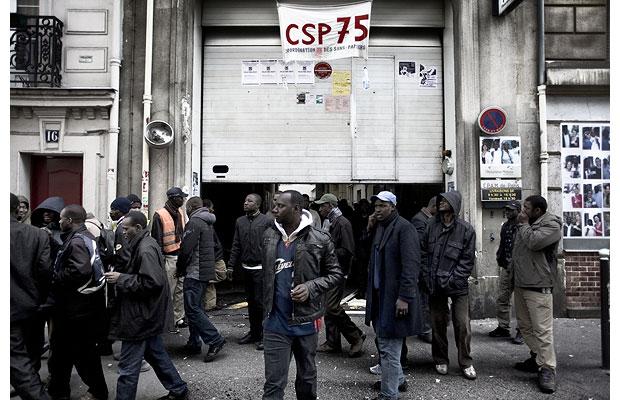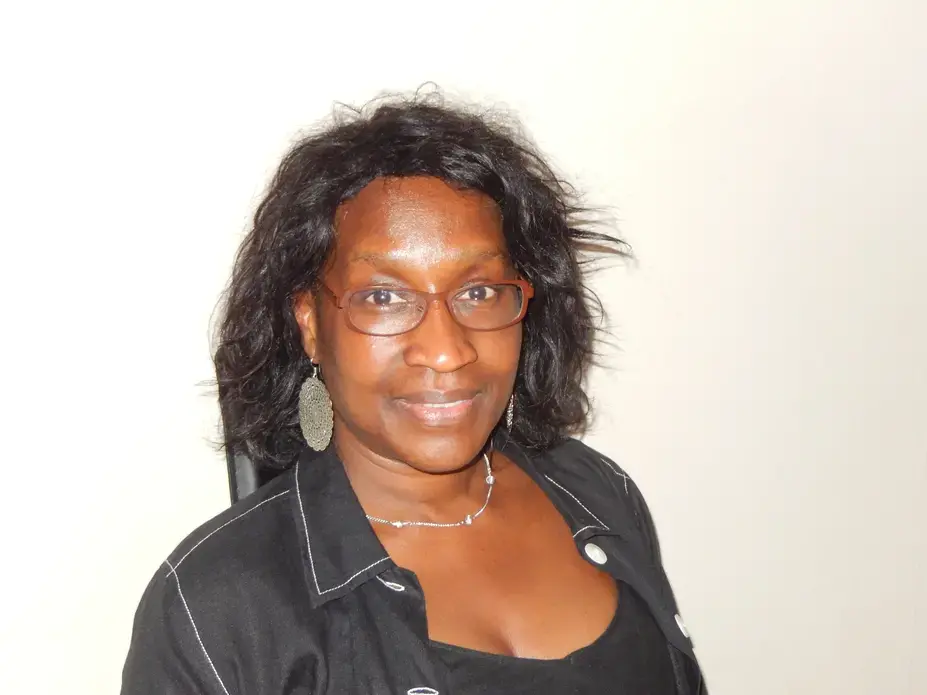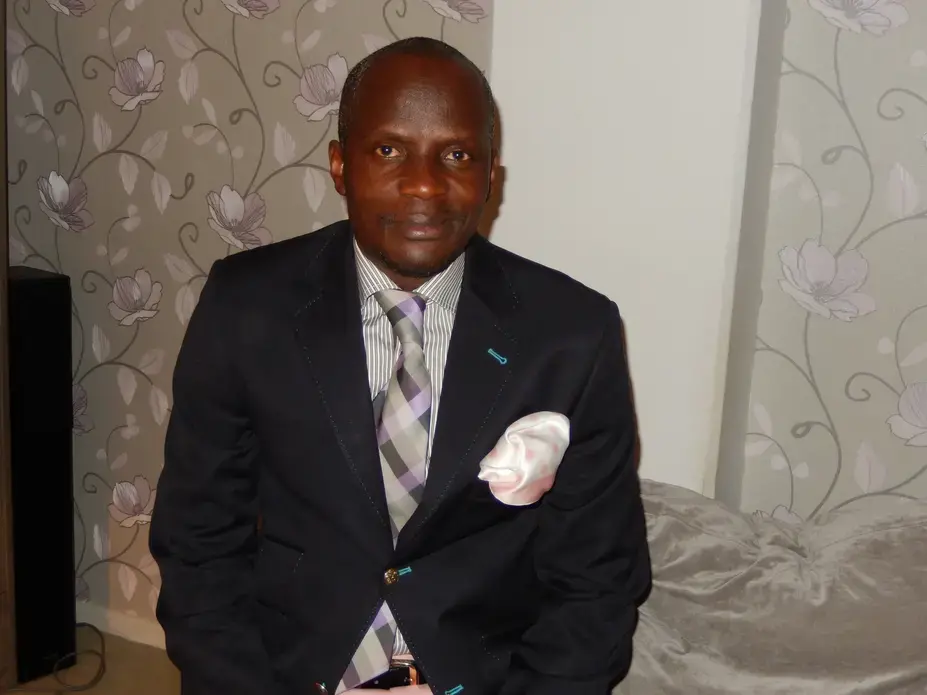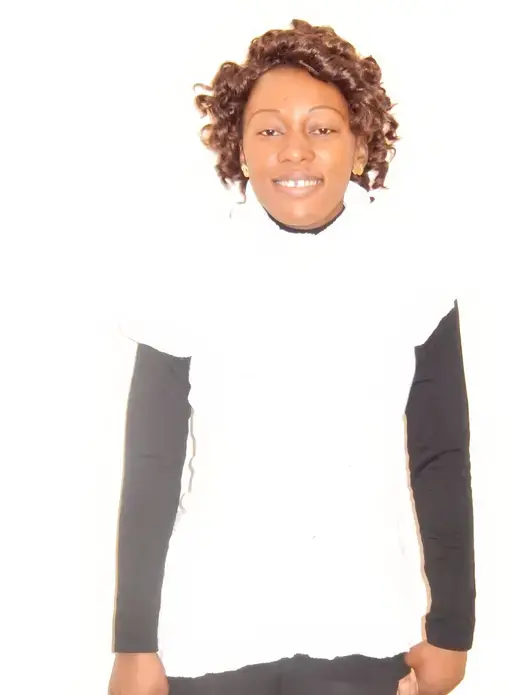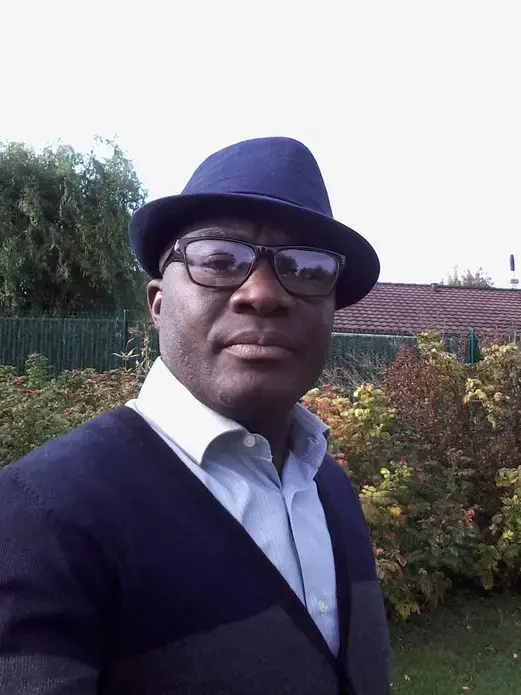Rodrigue Ossebi is a LaGuardia Community College student fellow, reporting on the experience of the African community in France—the discrimination recent immigrants face, their lack of acceptance, and their struggle to become educated and full members of society.
While living in the Republic of Congo, Ossebi studied to become a computer technician and electrical engineer and immigrated to the United States in July 2010. There he received help from Human Rights First, Bellevue Program for Survivors of Torture, Morrison & Forester, and the International Rescue Committee. He also developed a desire to report on the immigrant experience.
For this project Ossebi traveled to Paris where he interviewed African immigrants. He found that many of them had little access to financial aid, housing or a decent education, and their families did not have jobs. He says he met wonderful people such as Adji Dramé, Chancelle Bongowa, Nzalankzi Irennee, Louis-Georges Tin, and Richard Okouere, all of whom shared their stories with him. "I learned things about their lives that I could not learn through books or media. In many ways their lives showed snapshots of how African immigrants were treated unfairly in France," Ossebi said.
Adji Dramé was born in Senegal in 1968 and arrived in France at 18. She studied at La Sorbonne and obtained a PhD as well as an education certificate. She is now working as an educator for the unemployed at the Association d'Actions de Formation et d'Insertion (Association of Training and Insertion Actions).
Chancelle Bongowa, born in the Republic of Congo in 1983, is an immigrant with a Master's degree in social work from the Universite du Maine, Le Mans. She is a single mother of one child and currently unemployed. She has lived in France since 2011. Since she could not find a job she decided to return to school. She had wanted to major in finance and economics but was told to change her major to social work.
Irennee Nzalankzi lived a comfortable life in the Republic of the Congo, working for an oil company and supporting a small family. When civil war forced him from his country in 2013, he sought asylum in France. But what seemed like a land of opportunity quickly proved unwelcoming. Denied refugee status, Nzalankzi became a homeless, unemployed illegal immigrant.
Louis-Georges Tin, who is of African descent, was born in Martinique in 1974. He studied at l'Ėcole Normale Supérieure in the early 1990s, and in 2003, he presented a thesis on 16th century French politics. Currently, he is the president of the Conseil Représentatif des Associations Noires de France (Representative Council of France's Black Associations) and professor of literature at the Université d'Orléans.
Richard Okouere was born in the Republic of Congo, in 1968; he is a married with three daughters and one son. After he obtained his high school diploma, he joined the Congolese Army, and served as an officer for 19 years. Under the current president of Congo, M. Denis Sassou Nguesso, children don't have access to basic necessities like food, water, education, health care, the right to vote, and freedom of speech. Ossebi tells us that Okouere did not share the President Denis Sassou Nguesso's vision and was forced to flee his native country because of his political activity. In order to save his family Okouere sought protection in France. Here he shares his experiences about the difficulties he had in obtaining asylum. Okouere has lived in Le Mans, Pays de la Loire in France, for almost 10 years.
Following are excerpts from interviews with Rodrigue Ossebi.
Rodrigue: Why do Africans come to Europe?
Dramé: The arrival of African immigrants in France is explained by the fact that there is a great need for manual labor. France brought workers from former colonies. Other immigrants came and continue to come because of war and misery in their countries. They risk endangering their lives and their families because they are desperate. This is a life instinct. Wars were caused by France that ruled [parts of] Africa. Today the natural resources are purchased at lower costs and prices are set by the international market. And France has set up enormous networks of corruption with African leaders. Today in Africa most leaders accept the tradition of corruption as a birthright.
Bongowa: I would say that these thousands of Africans put their lives at risk as they go on a boat journey in search of what they think would be a better and easier living solution for them. We are not only here to find better living but the big issue is we are here to save our lives and the French government knows that. They really know why Africans are in France. I came to study because of corruption and the war. Also my country doesn't have a better school education system and my parents preferred to send me here in France to save my life and for my better education. But [life] took a turn for the worse. That is why I'm stuck here.
Nzalanki: There are several things that really drive us to France but I'm going only to talk about two. First, is the big network of corruption set up by the French government for African leaders. Secondly, there is the war that has killed millions of Africans [and was] organized by France—by giving guns to Africans leaders to kill African innocent populations across Africa.
Okoueré: I'm here because I have asylum here in France and you know what that means. It simply means that my life is in danger to stay or to return to my country. Africans come here not because they're in love with France but simply because they are in danger in their native countries. I would say there is no place like home but we cannot go where the fire is on. That's why France has to stop that big network for corruption they have set up for many years with African leaders so that peace can reign in Africa. And you see nobody will speak out again for African refugees like we are talking today. Immigration crises will not be the big topic in the world media.
Rodrigue: What do you know about African immigrants in France? Tell us more how they are treated by the French.
Bongowa: I know that African immigrants are objects of insults by the French and I also know that French people throw them bananas when they walk on the streets and no one in the media reports about that—even the government. I never see this on TV or other types of media—no reports bring the racial topic to the table. The only thing I see on the media published in French is a nice country that cares about their immigrants. I tell you that this is fake news—not the real one.
Nzalanki: There is much to say about African immigrants in France. I have lived here since 2013 without a job. In this country, if a person is black, there is no chance for humane treatment. Even if the person is a French citizen, if he is black, he is regarded as an "idiot," a very stupid person, and no one will employ him. Most African countries colonized by the French suffer similar treatment. In my country, the Republic of Congo, they call us "singes" or "monkeys," and we continue to receive the same treatment our grandfathers received. They claim that "France is a democratic country," but I don't see it. In my country, they have left Denis Sassou Nguesso in power for 32 years. Mr. Sassou has close ties with the French authorities, and he even financed some of their elections. This is not a secret.
Tin: In France, racist slurs like "singe," "makakou," (referring to a city in Gabon and Congo) or "monkey" are commonplace, shouted at black people in the streets. It is not unheard of to see people throw bananas at black people. We can expect no success from kids who grow up under these circumstances. Further, our foundation works on many cases in which black children are found dead suspiciously in police stations, unreported by the media. Police brutality against blacks goes largely unreported. France often drops cases concerning racially motivated police violence. Black youth die almost every day in police stations. Many young black men I knew died under suspicious circumstances in a police station, but the media rarely mentions such matters. My organization works tirelessly on behalf of black youth mistreated by the police. The police abuse black communities just to provoke aggressive responses, for instance, by searching their property without a warrant and arresting them on paltry charges. The police also use what they call "politics by number," by which they stop only black people on the streets and ask for their documents, as many blacks don't have papers. [Police operate under a quota system and are expected to meet a minimum number of arrests.] In France, to call someone "Noire" is an insult and white men routinely curse black men in the street.
Okoueré: I know better about African immigrants from the rotten food that we collected from local institutions and they call it aid. I'm telling you it is not a secret that I'm telling you. When African immigrants go collect those foods for the aid you have pity for us Africans. For instance, they give us foods that when you check for the expiration date they're about to finish tomorrow. Even the vegetables that they are giving us—you won't eat them because no parents want their family to become sick from something that you know will make them sick.
Rodrigue: Have you, a friend, or your family members ever experienced direct racism? If so, could you describe in detail what kind of racism was experienced?
Bongowa: Racism does exist in Le Mans. A year ago, while I was practically at the end of my pregnancy (7 to 8 months), I had a small problem with my shoes in Lafayette Tram Station. I went to the only shoemaker who is close to that tram station where my shoes broke, but the shoemaker said to me, "Je ne répare pas les chaussures des noires." ("I do not repair shoes for black people.") I was very shocked and I wanted to cry. Imagine an 8-month pregnant lady and you keep receiving all those kind of threats from the French.
I applied for more than 50 majors at several universities. But to my surprise my application was accepted in a field that I did not know and was not my dream or my objective: a master's degree in social work. I tried to find out about the reasons why my applications were not recognized. I never received a response.What I understood is that legally these majors are open to all, but illegally [there are] selective majors with specific criteria on nationality, the color of the skin, geographical origin, and religion. The selection does not happen by grades or by the normal letter. For all the 50 applications, the only sector that had accepted me was at the University of Le Mans.
Nzalanki: We also experience racism directly. One day in Paris, a man spit on my friend for no reason. She was also pelted with stones by people telling her to get out of France—despite the fact that she is a French citizen. For those not yet citizens, they face racism in prefecture, a place supposed to represent the state. They are often asked to come to the prefecture several times, bringing the papers they already gave. More and more, people denounce state-supported racism, promulgated by those in the municipals. This state-supported racism extends to police officers or local government officers. Christine Taubira, France's Justice Minister, is black and French, born in Guyane. People have likened her to a monkey, pairing her photo with an image of a chimpanzee on Facebook. One French magazine responded with a cover story entitled "Taubira Finds Her Banana" during protests against France's new gay marriage law, which Taubira supported. At one rally, a 12-year-old child presented Taubira with a banana. In another case, protesters threw bananas at her.
Okoueré: The discrimination is all over—even in school education systems where our children cannot reach their dreams just because they are black. For example, two months ago, I received a letter from my daughter's school counselor. The school counselor decided to place her into the vocational-type curriculum by giving reasons that her low grades had been falling for a while. But she was enrolled in a predominantly white school, and I know that I had no doubt that the school was just operating from the ideology that blacks were "incapable" of college work. Once I received this letter, automatically, I knew something was going on. And I told my daughter "No, lady, they are not going to do that to you, and I won't let their system dictate to you." I was very shocked and upset that day. I was informed that my daughter will be removed from her school. That means the general university was not her path but the only path for her to achieve as a black would be vocational courses.
Most African immigrants' children who are born in France do not feel their French citizenship; they also feel like this country is not a place that can guarantee them their dreams. I can say they feel unsafe in this country. They also don't feel they are French. The ideology that "Je suis Français" ("I'm French") doesn't have a place anymore in those children' minds. Some prefer to go somewhere else than to stay in France. Those kids prefer to move to different countries to find a better life. The reasons are clear. First, the country doesn't give any promise to make their dreams come true. Second, here jobs are given by the color of your skin, not your skills or brain quality; even though a person is smart, skin color is still the biggest issue in getting jobs in this country.
Rodrigue: Would you like to tell us about unemployment and the jobs market for French vis-a-vis African immigrant families in France?
Bongowa: Last year, I saw a job position posted on the university's website. I walked to that agency; this agency made me realize they didn't have the right to take me or to give a job. They told me that the only people that they could hire for that position were white students. And I asked the person who interviewed me, why didn't they write down on their website that they only hired whites? The answer was it was illegal to say that. I didn't have much to say and I just returned home.
The next day at school I told all my black friends and other colored friends and I gave the address for the place too. Some of them went to visit and received the same answer. The positions were reserved for whites and other Europeans, not black Africans. Most people who are in the same situation are sent to the employment center—the agency in charge of helping unemployed people to find jobs. But instead of doing their job to provide jobs to people, the employment center counselor will just note the strengths and weaknesses of the person instead of really focusing on finding a job. It's really a system which was set up to finance support structures, finding work for people according to their name, geographic origin, skin color and religion. Just to make me feel useful in the society. Right now, I prefer to volunteer for women's rights in one association so that I will see what is going on in this society. This coming August, I will start with a second master's in another sector which is not my desire or my goal. But I have to take it again because I cannot stay home without doing nothing.
Nzalanki: I have no job, no home, no papers, nothing, nothing, after two years. I thank God for the family who took me in, because I could not have stayed on the streets. In France, millions of African immigrants are unemployed—even those who are citizens and residents. We live in real poverty, and no one cares for us, especially if you are colored. The African immigrant unemployment rate stems from racial discrimination, even in government jobs. The darker you are, the poorer you will be.
Tin: Unemployment discrimination against African immigrants is rampant. The discrimination is institutionalized, starting with the job application itself. In 2006, a car manufacturing company, Renault, told its syndicates to fire only black people during a round of economically motivated layoffs. The company had a sizable number of Senegalese employees. Another form of racism, systematic discrimination, denies jobs to African people who cannot read or write, even if these skills are not required for the job at hand. Even government jobs are known to be racially exclusive, and even black French citizens have trouble finding work. When I defended two African employees of Renault for wrongful termination, the judge asked for statistics on race—ethnic statistics. This data is tricky to find, because no one has kept an official record of racial bias. For this reason, the case did not go any further, and the judge ruled in favor of the company. Worse, Renault employees refrained from reporting their own experiences of racial discrimination, for fear of losing their jobs.
Okoueré: I'm unemployed for almost two years and I cannot find a job. How can I support my family if I'm not working? In fact, my wife and her friend were victims of unfair treatment during their job interview in Le Mans at the CHU hospital. A white lady in charge of recruitment told them that "Oh encore une tache" ("Oh another smudge") and the lady in charge left her office by slamming her office door. In the city like this one, the company like SNCF or Setram has only two or three Black Africans who work for them as tram conductors. I know them because they are the only African immigrants who work for this company here in Le Mans. If I start to count the list of companies that are not hiring Africans here it will be too long and we won't finish it. African immigrants need these jobs because we have to support our families.
(Editor's Note: A discussion of education and housing opportunities will follow in Part 2 of the series.)


